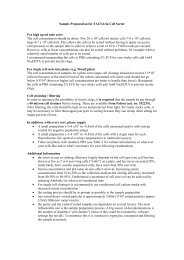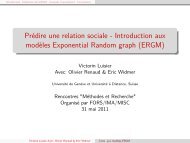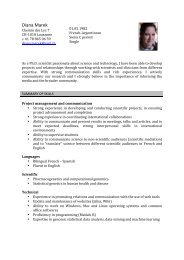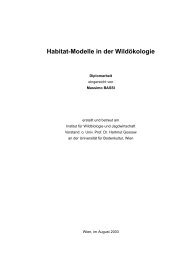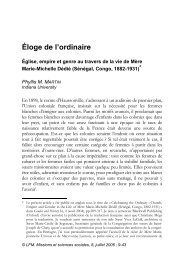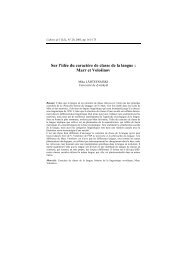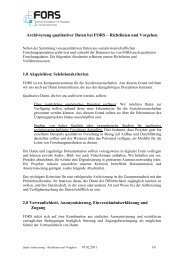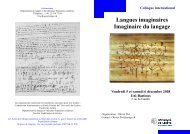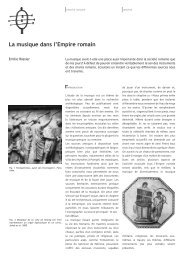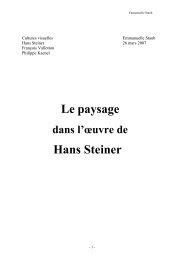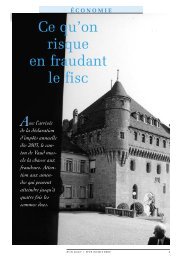conference programme book - European Survey Research ...
conference programme book - European Survey Research ...
conference programme book - European Survey Research ...
You also want an ePaper? Increase the reach of your titles
YUMPU automatically turns print PDFs into web optimized ePapers that Google loves.
138 THURSDAY 21 JULY3.20.2 Unemployment and well-being in Europe. The effect of country unemployment rate, work ethicsand family es.M. Mikucka 11 Centre d’Etudes de Populaons, de Pauvreté et de Poliques Socio-Economiques (CEPS / INSTEAD), LuxembourgSubjecve well-being literature shows that higher unemployment rate corresponds to lower psychological costof own unemployment. The goal of the paper is to deepen the understanding of this regularity by invesgangthe role played by the work ethics and the strength of family es. I analyze the <strong>European</strong> Values Study data(2008) for 36 countries using mullevel regression methodology.3.21 Mullevel analysis in comparave research ITo be held on July 21, 2011 from: 11:00 to 12:30, in room 315.Coordinated by:• Bart Meuleman - University of Leuven, Belgium• Elmar Schlueter - University of Cologne, <strong>Research</strong> Instute for Sociology, Germany3.21.1 How many countries do you need to do mullevel modeling? A Monte Carlo Experiment comparingFrequenst and Bayesian approaches.D. Stegmueller 11 University of Mannheim, Germany<strong>Research</strong>ers in comparave research increasingly use mullevel models to test effects of country level factorson individual behavior. An underlying assumpon of those models is asymptoc normality of countrylevel random effects. However, applicaons in comparave research rounely involve only a small number ofcountries, which has led some researchers to queson the ulity of mullevel modeling. However, just howmany countries constute too small a sample is unclear and different author give widely different ’rules ofthumb’. The key quesons are: How many countries do we need to achieve reliable inferences? Does switchingto a Bayesian approach, which does not rely on asymptoc jusficaons, lead to beer results? To answerthese, I present results from a Monte Carlo experiment, comparing esmaon strategies for mullevel modelsbased on Maximum Likelihood and Bayesian approaches...3.21.2 Inequality in student achievement: a mullevel means and variance regression modelH. van de Werorst 1 , R. Koçer 11 University of Amsterdam, NetherlandsThis paper presents a mullevel means and variance regression model that assesses to what extent individualand contextual variables predict the mean score on dependent variables and the deviance from the mean.The model takes account of heteroskedascity that results from deviances being related to predictor variablesat the individual or contextual level. We apply the model to the well-known trade-off hypothesis that statesthat a country’s level of between-school tracking has a posive effect on the mean student performance andmagnifies its dispersion. We use the PISA 2006 data on science achievement. Similar to most earlier studiesthat relied on aggregate data, our findings refuted the trade-off hypothesis. Between-school tracking magnifiesthe variance in performance, but does not affect its mean.3.21.3 Advantages and Disadvantages of Bayesian Mulnomial Mullevel Analysis in Comparave <strong>Survey</strong><strong>Research</strong>J. Mewes 11 University of Bremen, Germany



